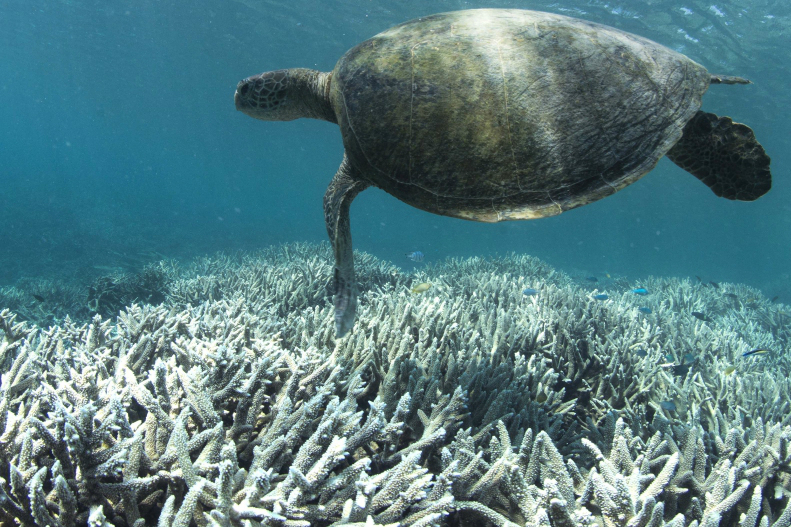BRIDGETOWN — Tropical open-water species — animals that swim freely throughout the ocean — have declined by about half between 1970 and 2010, according to a new report published in the journal Proceedings of the National Academy of Sciences.
The researchers found that species that have limited ranges or stay still, such as coral, have declined as well. The exception to this pattern has been bottom-dwellers, whose populations appear to have remained relatively unchanged.
The authors believe that warming ocean waters play a significant role in the overall decline because marine species have evolved over time to thrive in precise conditions. Over the four decades that the researchers examined, water temperatures in the Caribbean increased by 0.2 degrees Celsius, an enormous increase in such a short span of time.
“In geological history, this has occurred in the blink of an eye,” Sebastian Ferse, an ecologist who was not involved with the study, told Reuters. “To see such changes occurring so rapidly is something quite alarming.”
The researchers studied records for 48,661 animals to assess the impact of global warming. They found that fish populations started to decline at around 20 degrees Celsius (68 degrees Fahrenheit).
Identifying a primary cause for biodiversity loss is hard because the ocean is beset by so many challenges.
In addition to rising temperatures, the chemistry of the ocean is changing as excess carbon dioxide gets absorbed in the water. This process is called ocean acidification and it has been shown to dissolve the shells of cretaceous animals.
An industrialized fishing sector is rapidly hollowing out fish populations by trawling the ocean and dumping waste into waters, essentially replacing biodiversity with plastic pollution. Fossil fuel vessels and cargo ships fill the ocean with harsh sounds that disrupt echolocation, while factories around the world release toxic waste and garbage into the ocean.
For communities in Caribbean and other coastal regions, the decline of biodiversity threatens their ways of life. Tourism and small-scale fishing are major pillars of coastal economies, and billions of people worldwide depend on fish as a source of protein.
Efforts to protect marine ecosystems have been somewhat effective, according to Reuters, which also reports that coral reefs in the Caribbean have shown resilience in the face of bleaching events.
Many marine animals have also begun to migrate to cooler regions. But this is only a short-term solution as the ocean continues to heat worldwide.
Protecting marine ecosystems in the years ahead will require countries to set aside huge swaths of ocean for conservation, curb marine pollution, develop international rules for sustainable fishing, and reduce greenhouse gas emissions, according to the United Nations.



